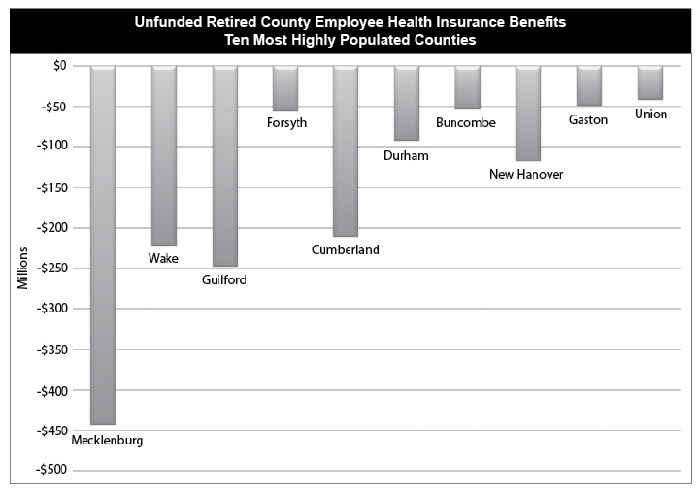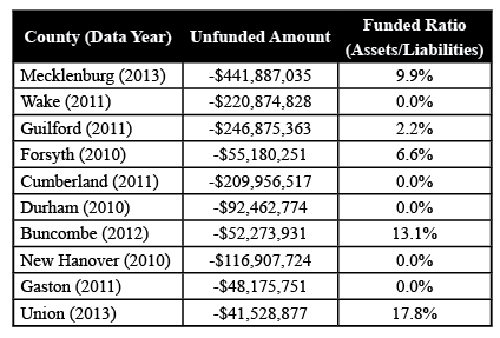Retiree Health Benefits
Recommendations
Local governments should move from traditional defined benefit plans for retirees to Health Savings or Health Reimbursement Accounts (HSAs or HRAs).
Local governments should ensure a reserve fund to cover costs of promised health insurance benefits.
Local governments should also tighten eligibility criteria and reduce the generosity of retirement benefits to existing employees and those newly hired.
Background
County employees traditionally received retirement health benefits after becoming vested through a number of years of service. In recent years, employee health care obligations have become a major concern for counties' fiscal sustainability. Defined benefit healthcare plans are no longer supportable, and counties are changing to accommodate an aging retired workforce and mitigate future long-term unfunded liabilities.
|
Legislation in 2010 (SB1212) changed the way local governments fund post-employment benefits. The law allows each local government the option to establish a trust fund into which it can make contributions and have those contributions invested by the state treasurer. The funds are then invested in marketable securities, such as treasuries and corporate securities, to allow the trust fund to take advantage of public market gains.
In addition to the changes made with the 2010 law, many local governments have been changing the number of years of service required to receive health benefits in an effort to lessen future liability. Forsyth County has changed the vesting period from five years to twenty, and will only provide health coverage until the retiree is age 65 or eligible for Medicare. Cumberland County switched from a ten to a twenty-five year vesting period in 2008. Guilford County discontinued post-retirement health benefits for all those hired after July 2009 and instead offers employees HSA-like plans to avoid future liabilities to the county. The most populated county, Mecklenburg, closed its post-employment health benefits to new employees after June 2010, and only funds health premiums 100 percent for those employees with 30 or more years of service and 50 percent for those with more than 20.
Analysis
Even with these changes in many counties, promised health benefits for retired county and municipal government employees are woefully underfunded. The ten most populated counties in the state have total actuarial liabilities more than $1.6 billion, but actuarial assets of just $74.7 million, leaving 95.3 percent of the liability unfunded. The $1.6 billion unfunded liability is almost 60 percent larger than the covered payroll of those counties. Many counties have decided to adopt a pay-as-you-go method for retiree health benefit payments and have no assets available to pay for this future liability. More and more counties are taking advantage of the creation of the trust managed by the state treasurer, as rating agencies are beginning to look at this unfunded liability as a reason to lower bond ratings.
Key Facts
Nine counties — Graham, Hoke, Jones, Lenoir, Madison, Polk, Richmond, Warren, and Washington — do not pay any part of a retiree health care benefit premium.
Guilford County, which reports an unfunded liability 144 percent larger than the county payroll, moved all employees hired after July 1, 2009 into a defined contribution health care plan. County commissioners also set aside $2 million to pay for the health benefits of existing employees in both 2011 and 2013.
Unfunded health care promises:
- Hurt local governments' abilities to provide services as funding demands rise over time,
- Leave local government employees receiving less than their expected compensation, and
- Put citizens in jeopardy of higher taxes to pay for local government health care.


Analyst: Sarah Curry
Director of Fiscal Policy Studies
919-828-3876 • scurry@johnlocke.org
The entire 2014 City & County Issue Guide, is available for download as a 3.6MB Adobe Acrobat file.
The free Adobe Acrobat Reader is required to view or print this document.
|



